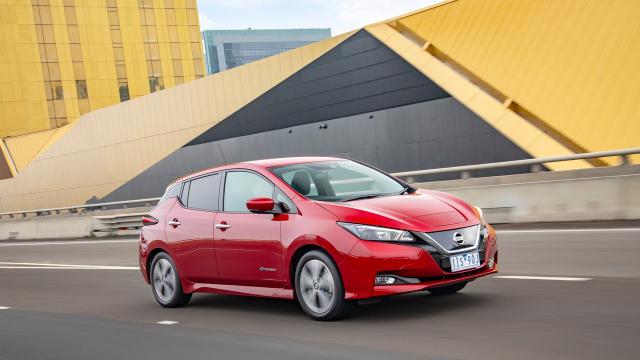The NSW government has announced a $490 million EV package to encourage uptake. It will also come with a new tax that will sound familiar to Victorians – but with a key difference.
The Berejiklian government revealed the package over the weekend, which includes $171 million to extend public charging infrastructure across NSW, as well as removing stamp duty on EVs that cost under $78,000.
This is just under the luxury car tax (LCT) threshold. In the 2021-2022 financial year the bar for fuel-efficient vehicles that would be hit with LCT was raised to $79,659. This was significant as previously there was only a few hundred dollars difference between the LCT threshold for fuel efficient and other vehicles. Now the gap is closer to $10,000.
The NSW government also announced an additional $3,000 rebate for the first 25,000 battery or hydrogen cell vehicles that are bought across the state. However, they need to cost less than $68,750.
This measure is very similar to the $3,000 EV subsidy Victoria announced back in May. However, NSW is offering it to 5,000 more EVs than Victoria and the qualifying price threshold is a whole $10 more. This seems quite purposeful and is pretty funny.
According to the announcement, $131 million of the package will be to establish an ultra-fast charging network within reach of all major highways across the state.
There are also apparently plans to ensure that Sydney drivers will always be within five minutes of a public fast-charger.
$40 million will also go towards public charging facilities at key public transport and tourist sites across NSW.
And as for the government itself, $33 million will go towards purchasing electric vehicles for the NSW government fleet. Apparently the goal is for the fleet to be fully electric by 2030.
[related_content first=”1690702″]
It also comes with a new EV tax, eventually
The $490 million package will be accompanied by a road user fee for EV drivers. Again, this is similar to what Victoria announced several months back.
The distance-based charge in NSW will also tax 2.5c a kilometre for EVs and and 2c for plug-in hybrids.
However, one major difference is this pay-per-kilometre tax is understood to be deferred until 2027. Comparatively, Victoria’s tax is set to begin next month.
If true, this is a great move for NSW. At the present time there are no federal incentives and very few state ones to encourage EV uptake. Plus the cars themselves aren’t cheap. Very few cost under the $50,000 mark in Australia.
Combined with a less-than-robust public charging network, it’s unsurprising that less than 1 per cent of the population owns an electric vehicle.
And this is why Victoria’s version of this tax copped so much backlash. It wasn’t announced alongside any subsidies or incentives – even the $3,000 rebate was announced later.
And while ‘everyone who uses roads should pay for them’ is a fair argument — taxing a small percentage of vehicles that are designed to help the planet seems like active discouragement, especially when it isn’t coupled with other significant subsidies and incentives.
While the Victorian government has since also announced plans for its public charging network and fleet, they’re both significantly lower than what NSW just announced. In fact, the NSW package is five times higher than that of Victoria.
“Our comprehensive strategy is about making sure we have the right mix in place to incentivise the take-up of electric vehicles while ensuring everyone who drives on our roads contributes to funding and maintaining them,” NSW Treasurer Dominic Perrottet said in a statement.
“Our strategy also commences long-term major tax reform. Today we begin the process of permanently phasing out stamp duty on electric vehicles and a deferred transition to a fair and sustainable per-kilometre road user charge for electric vehicles.”
